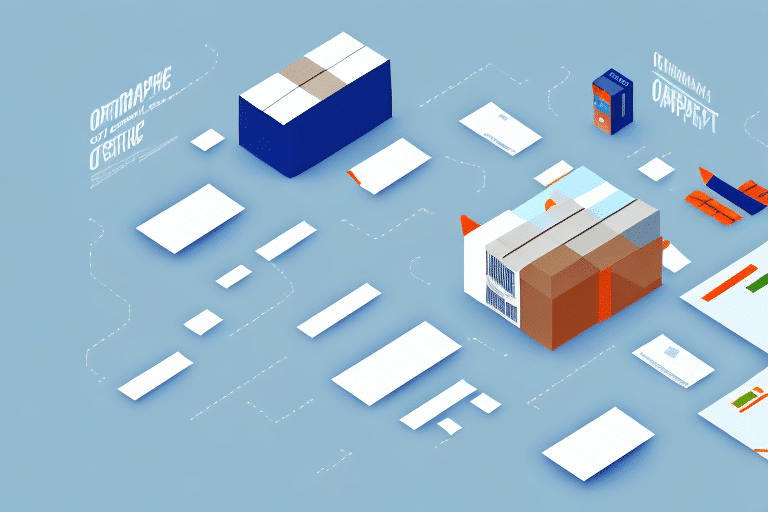Innovative Strategies for Cost Management in Scaled Shipping Operations
Shipping is a crucial component for many businesses, often representing a significant portion of operational costs. As companies grow and scale their operations, effectively managing these shipping costs becomes increasingly challenging. This article explores innovative strategies for cost management in scaled shipping operations, offering businesses actionable techniques to reduce expenses and enhance profitability.
Effective Budgeting and Cost Forecasting
Accurate budgeting is foundational to managing shipping costs effectively. By understanding current shipping patterns, including the volume, types, and dimensions of packages, businesses can create realistic budgets and forecast future expenses with greater precision.
Analyzing Shipping Data
Leveraging historical shipping data allows companies to identify trends and anticipate future costs. Tools like statistical analysis platforms can provide insights into shipping volumes and cost fluctuations, aiding in more accurate budget planning.
Selecting the Right Shipping Carriers
Choosing appropriate shipping carriers based on package size, weight, and delivery speed needs can lead to significant cost savings. For instance, opting for freight carriers for bulk shipments or utilizing express services for smaller, urgent packages ensures cost-effectiveness and efficiency.
Regular Budget Monitoring and Adjustment
Shipping costs can vary due to factors like fuel price changes and carrier rate adjustments. Regularly reviewing and adjusting the shipping budget helps maintain financial control. Implementing a Transportation Management System (TMS) can automate this process, providing real-time budget tracking and adjustments.
Optimizing Supply Chain and Logistics
An optimized supply chain enhances efficiency and reduces shipping costs by streamlining processes and improving coordination among suppliers and distributors.
Streamlining Supply Chain Processes
Collaborating with suppliers and distributors to refine inventory management and order fulfillment processes can minimize delays and reduce the need for expedited shipping. This leads to lower transportation costs and improved delivery times.
Implementing Lean Logistics Principles
Adopting lean logistics principles involves minimizing waste, reducing lead times, and optimizing shipping routes. Techniques such as just-in-time inventory management and route optimization software contribute to cost savings and operational efficiency.
Leveraging Technology and Automation
Technology plays a pivotal role in modernizing shipping operations, enhancing accuracy, and reducing manual labor costs.
Automation of Shipping Tasks
Automating repetitive tasks like package labeling and sorting reduces labor costs and minimizes human errors. Automated systems ensure faster processing times and greater consistency in shipping operations.
Real-Time Tracking and Advanced Analytics
Implementing real-time tracking systems provides visibility into shipment statuses, enabling proactive management of delays or issues. Advanced analytics can identify cost-saving opportunities through route optimization and shipment consolidation.
Utilizing Shipping Software
Shipping software solutions, such as those offered by ShipBob and similar providers, automate order processing, label generation, and tracking, streamlining the entire shipping workflow and reducing administrative overhead.
Implementing Sustainable Shipping Practices
Sustainability in shipping not only benefits the environment but also offers cost-saving advantages by reducing material usage and optimizing transportation methods.
Eco-Friendly Packaging Materials
Using biodegradable or recycled packaging materials can lower costs associated with packaging and reduce environmental impact. This approach also appeals to eco-conscious consumers, potentially boosting customer loyalty.
Optimizing Transportation Modes and Routes
Choosing more efficient transportation methods, such as rail or sea freight for long-distance shipments, can lower carbon emissions and transportation costs. Additionally, route optimization software ensures the most fuel-efficient paths are taken, further reducing expenses.
Collaborative Partnerships and Outsourcing
Building strategic partnerships and outsourcing certain shipping functions can lead to reduced costs and enhanced operational efficiency.
Partnering with Vendors and Carriers
Collaborating with vendors to consolidate shipments and negotiating shared shipping rates with carriers can result in significant transportation cost reductions.
Outsourcing to Third-Party Logistics Providers (3PLs)
Outsourcing shipping operations to 3PLs allows businesses to leverage specialized expertise and advanced technologies without the overhead costs of maintaining these capabilities in-house. Providers like CMA CGM offer comprehensive logistics solutions that can scale with business growth.
Risk Management and Quality Control
Effective risk management and quality control are essential for minimizing shipping-related costs and maintaining customer satisfaction.
Implementing Risk Reduction Strategies
Strategies such as shipping insurance and contingency planning protect against losses from package damage or loss. Additionally, robust quality control processes reduce the incidence of shipping errors and returns, directly impacting cost efficiency.
Balancing Quality Control with Cost Management
Maintaining high-quality standards while managing costs involves finding the right balance between affordability and service excellence. This balance ensures customer satisfaction without compromising financial performance.
Investing in Workforce Development
Employees play a critical role in shipping operations. Investing in their training and development can lead to improved efficiency and reduced errors.
Employee Training Programs
Providing comprehensive training programs equips employees with the necessary skills and knowledge to handle shipping processes effectively. Well-trained staff can identify inefficiencies and implement cost-saving measures.
Continuous Development Opportunities
Offering continuous learning opportunities ensures that employees stay updated with the latest industry practices and technologies, fostering a culture of continuous improvement and operational excellence.
Navigating International Trade Regulations
Compliance with international trade regulations is vital for businesses engaged in global shipping, helping to avoid costly legal issues and delays.
Understanding International Shipping Requirements
Familiarizing oneself with the regulations of destination countries, including import/export duties and documentation, ensures smooth transit of goods and minimizes the risk of shipment holds or fines.
Partnering with Reputable Logistics Providers
Collaborating with experienced logistics providers who understand international regulations can streamline shipping processes and ensure compliance, reducing the likelihood of costly mistakes.
The Future of Cost Management in Shipping Operations
As the shipping industry evolves, emerging technologies and innovative practices are shaping the future of cost management.
Adoption of Machine Learning and Blockchain
Machine learning algorithms can predict shipping trends and optimize routes, while blockchain technology enhances transparency and security in shipping transactions, both contributing to reduced costs and improved efficiency.
Emphasis on Sustainability and Transparency
The growing focus on sustainability drives businesses to adopt eco-friendly shipping practices, which can lead to cost savings and enhanced brand reputation. Increased transparency in shipping operations fosters trust and accountability, further benefiting cost management efforts.
Conclusion
Effective cost management in scaled shipping operations is achievable through a combination of strategic budgeting, supply chain optimization, technological integration, sustainable practices, collaborative partnerships, and robust risk management. By implementing these innovative strategies, businesses can significantly reduce their shipping expenses, enhance operational efficiency, and improve their overall profitability. Staying abreast of emerging trends and continuously refining shipping practices will ensure sustained cost savings and competitive advantage in the dynamic shipping landscape.




















